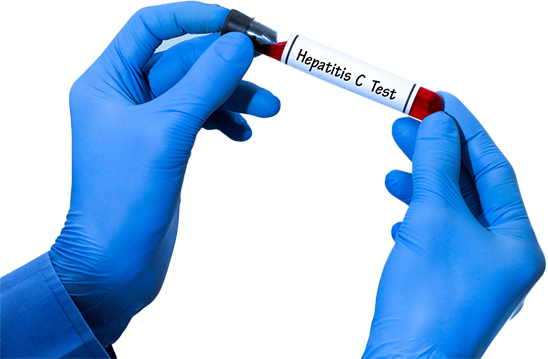
What is Hepatitis A?
Hepatitis A is one of the most common infections of the liver, caused by the hepatitis A virus (HAV). It mainly affects the age group 1-14 years and is often asymptomatic. However, the severity increases with the growing age. This virus is transmitted through contaminated water & food via the feco-oral route. It can spread through poor sanitation or close contact with another infected person.
What are the Symptoms of Hepatitis A?
- Fatigue, Nausea & Vomiting
- Pain or discomfort in the Abdomen, especially in the right area beneath the Lower Ribs
- Clay-colored Bowel Movements
- Loss of Appetite
- Low-grade fever
- Dark Urine
- Joint Pain
- Yellowing of the Skin and Eyes (jaundice).
How is Hepatitis A diagnosed?
Hepatitis A can be detected by observing typical symptoms. Doctors can detect if you are infected with the hepatitis A virus by a simple blood test. Our body develops an antibody, IgM Anti HAV (Elisa), against the virus which becomes positive within weeks and is the choice of investigation. Book your appointment with one of the top liver surgeons in India, Dr. Vivek Vij
What is the treatment?
The particles of Hepatitis A virus shed in the stool (faeces) for 5 days, which is practically diagnosable. Treatment is always symptomatic but requires hospitalization whenever a patient is facing recurrent symptoms such as nausea, dehydration, prolonged jaundice, encephalopathy, and/or coagulopathy. In cases of Fulminant Hepatic failure due to hepatitis A, liver transplantation is required.
What is Hepatitis E?
Hepatitis E is one of the most common infections of the liver, caused by the hepatitis E virus (HEV). It mainly affects the young and middle age group and is often asymptomatic. However, the mortality rate is as high as 15-20% in pregnant females. The severity of this infection increases with the growing age. This virus is also transmitted through contaminated water & poor living standards via the feco-oral route. It can spread through close contact with another infected person. The prevalence of Hepatitis E is highest in East and South Asia.
What are the Symptoms of Hepatitis E?
- Fatigue, Nausea & vomiting
- Pain or discomfort in the abdomen, especially in the right area beneath the lower ribs
- Loss of appetite
- Mild fever
- Dark urine & pale stools
- Joint pain
- Yellowing of the skin and eyes (jaundice).

How is Hepatitis E diagnosed?
Hepatitis E can be detected by observing typical symptoms. Doctors can detect if you are infected with the Hepatitis E virus by a simple blood test. Our body develops IgM & and IgG Anti HEV antibodies against the virus. IgM anti-HEV antibodies can be detected during the initial months of HEV infection; however, IgG anti-HEV antibodies represent either recent or remote exposure. Book your appointment with Dr. Vivek Vij, one of the best liver surgeons in India.
What is the treatment?
The treatment is always symptomatic and patients are often advised to rest, get adequate nutrition and avoid any medications or drugs that can damage the liver. However, hospitalization is recommended whenever a patient is facing recurrent symptoms such as nausea, dehydration, prolonged jaundice, encephalopathy, and/or coagulopathy. In cases of Fulminant Hepatic failure due to hepatitis E, liver transplantation may be required.




